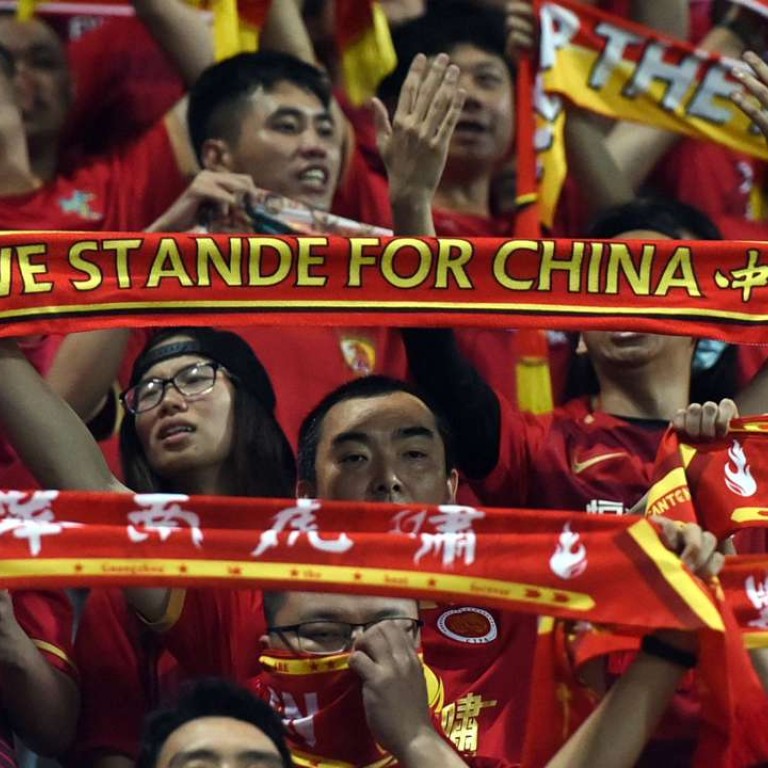
Guangzhou Evergrande fans were performing patriotic duty by displaying insulting banner in Hong Kong, say China netizens
Sentiment overwhelmingly in support of fans who displayed a banner calling for the “annihilation” of Hong Kong’s “British dogs”
The Chinese champions could face a fine and have to play matches behind closed doors after the Asian Football Confederation charged the team with discrimination and spectator misconduct.
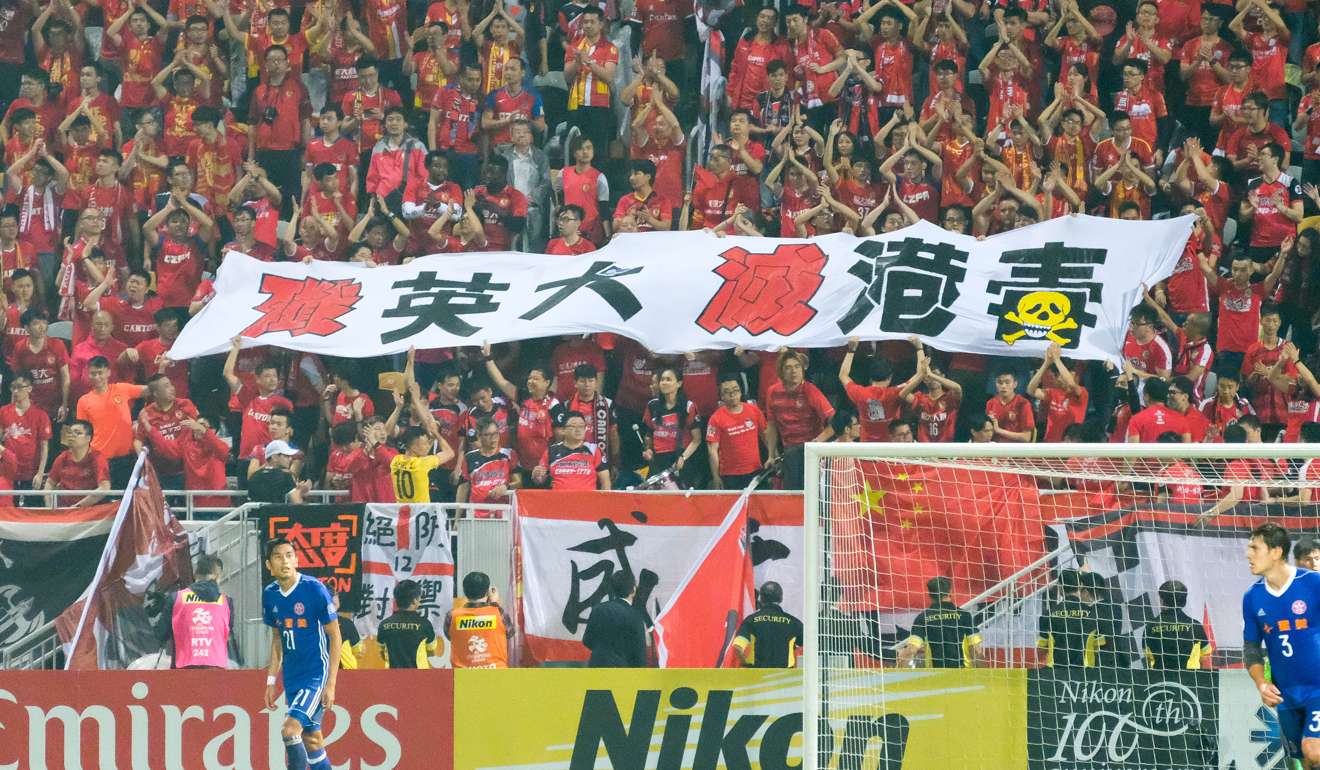
And judging by online reaction in China, few had a problem with the banner.
A poll on Sina, one of the country’s largest web portals, asked readers if they felt Guangzhou fans had done anything wrong. Less than 20 per cent of the 3,000-plus respondees said yes.
The poll attracted 5,000-odd comments, with the most popular overwhelmingly in favour of the fans’ action.
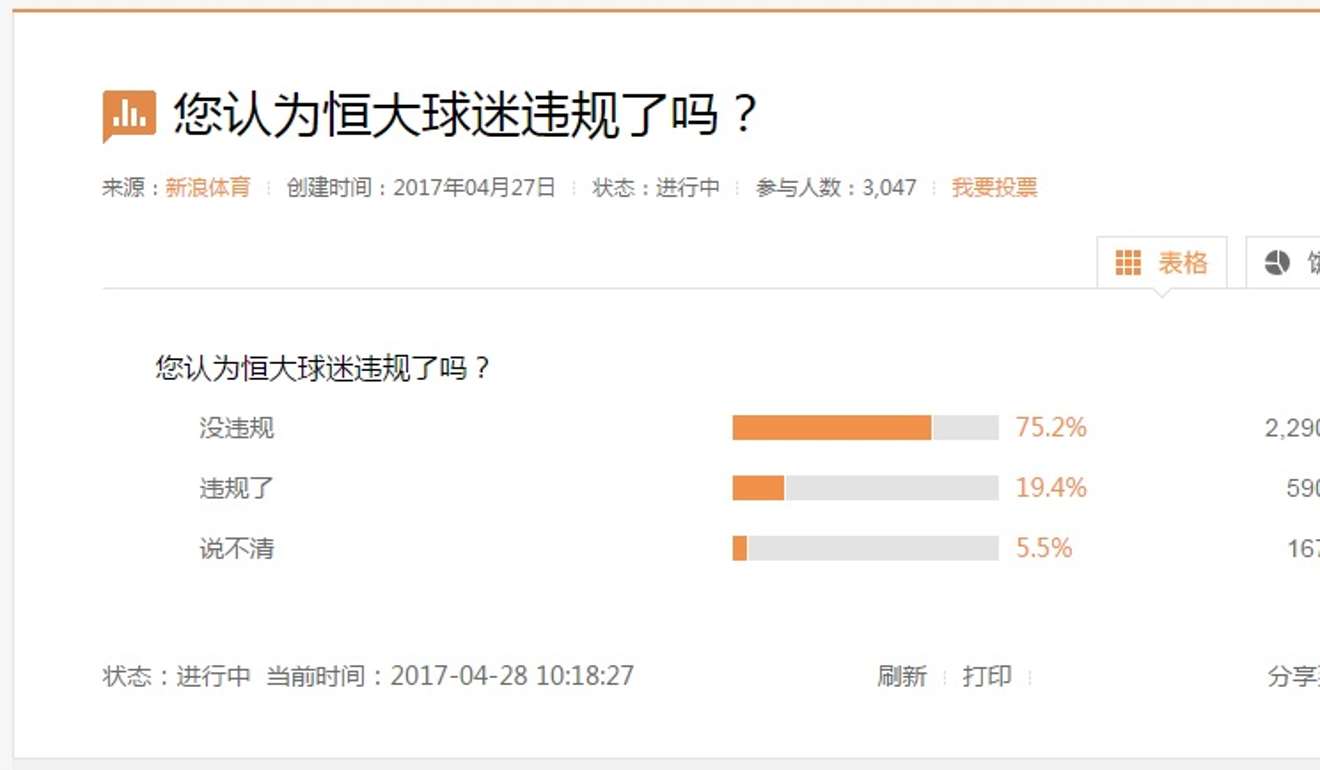
“First, the home fans displaying the former colonial flag is not a political symbol?” read the top-rated comment, from a reader in Fujian province.
“Second, the home team fans booing the national anthem is not wrong?
“Third, giving visiting fans the middle finger during the national anthem is not insulting?
“Please answer AFC! Let’s also hear from Chinese Football Association chairman Cai Zhenhua!!!”
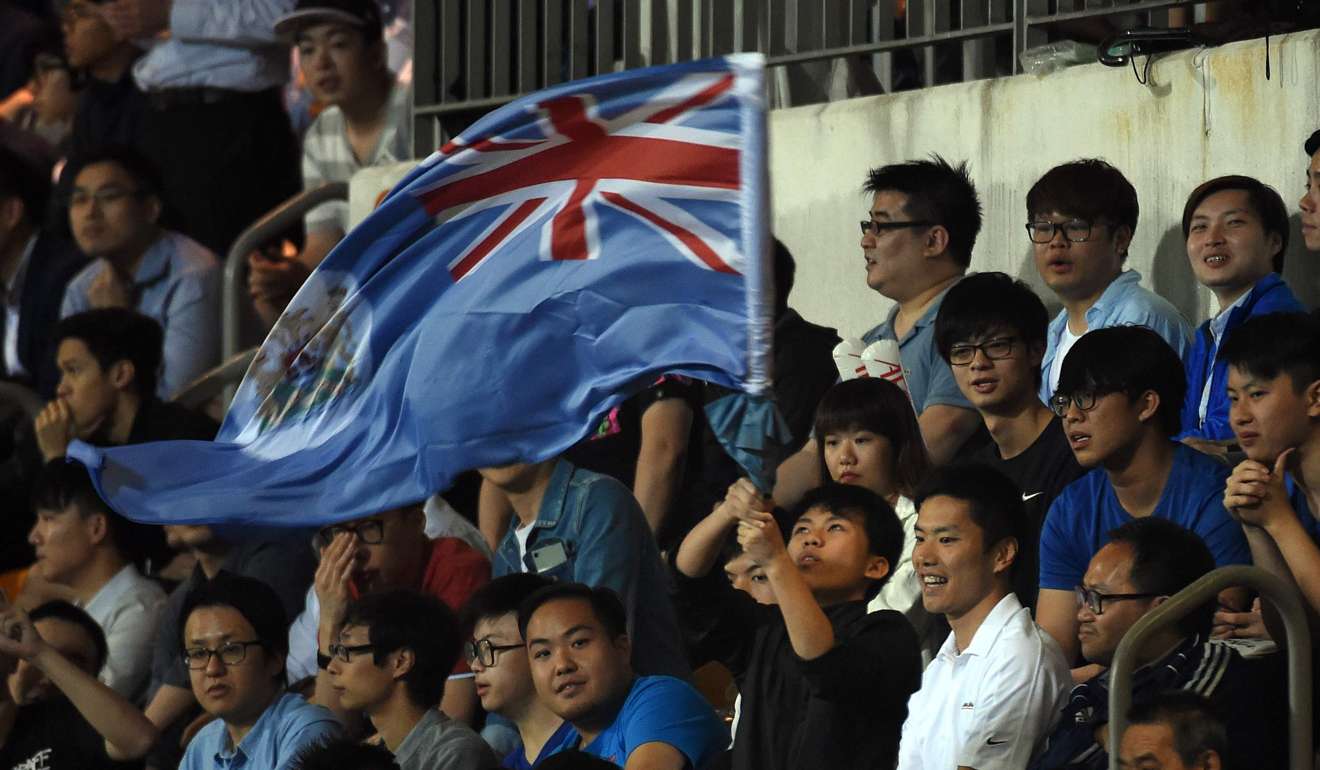
A Hong Kong colonial-era flag was hoisted by an Eastern fan during the game, while the national anthem of China has regularly been booed at recent international games in Mong Kok Stadium.
Many said the AFC “should not interfere in China’s affairs”, a common line wheeled out by China’s government when accused of human rights violations and the like by foreign powers.
“Get out of China you brutes,” said another acclaimed comment. “Hong Kong ‘chop suey’ boo the national anthem, are you so righteous? ... [when] you are insulting the dignity of the country, what’s wrong with fighting back?”
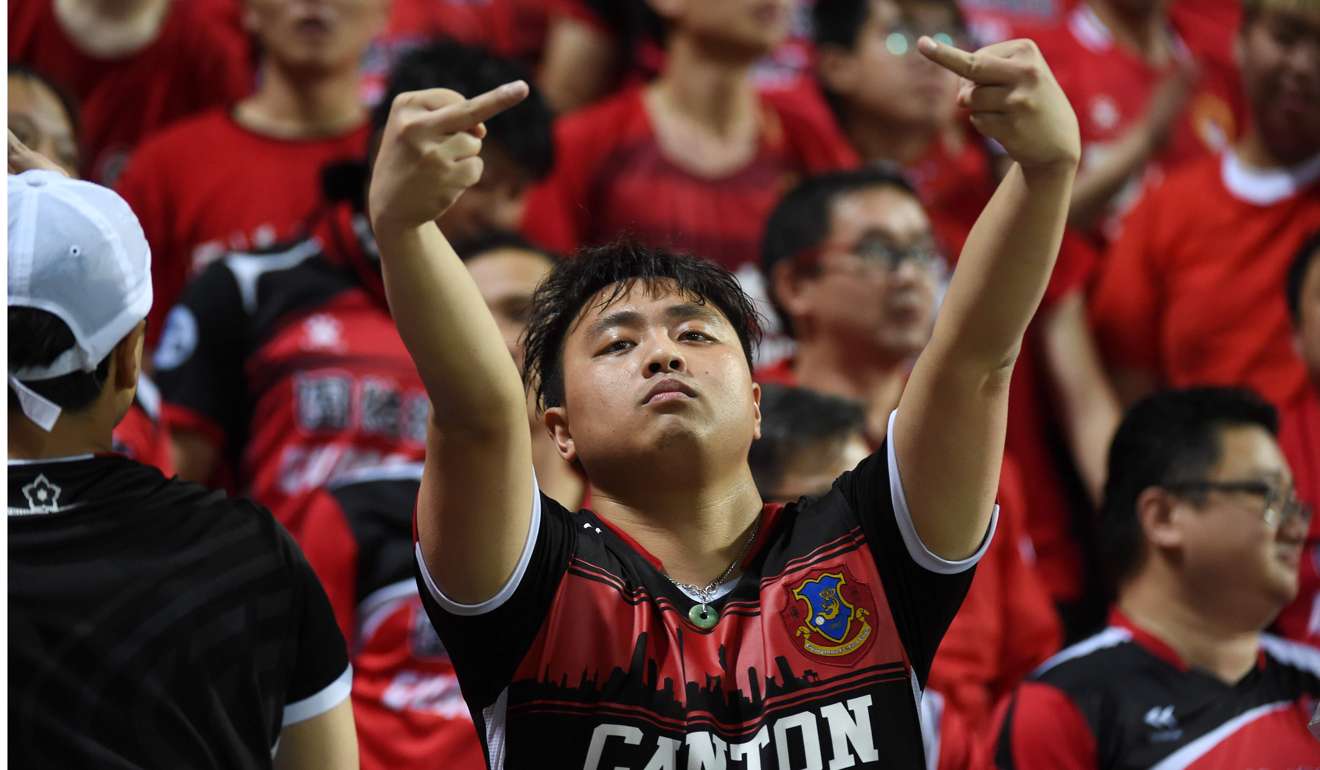
A popular opinion was that Evergrande fans were being good patriots.
“The Constitution of the People’s Republic of China states that every Chinese citizen has the right and obligation to safeguard the dignity and interests of the State,” said one commenter.
The AFC’s official Sina Weibo account was besieged with angry messages in the same vein. Its post announcing the investigation had attracted more than 11,000 comments on Weibo on Friday morning. By contrast, its English-language post on Twitter received 16 replies.
“AFC suspected of supporting Hong Kong independence and not recognising the one-China principle!” blasted one Weibo commenter.
Another popular argument is that the Guangzhou fans could not be guilty of “discrimination” since the Hong Kong fans are Chinese too.
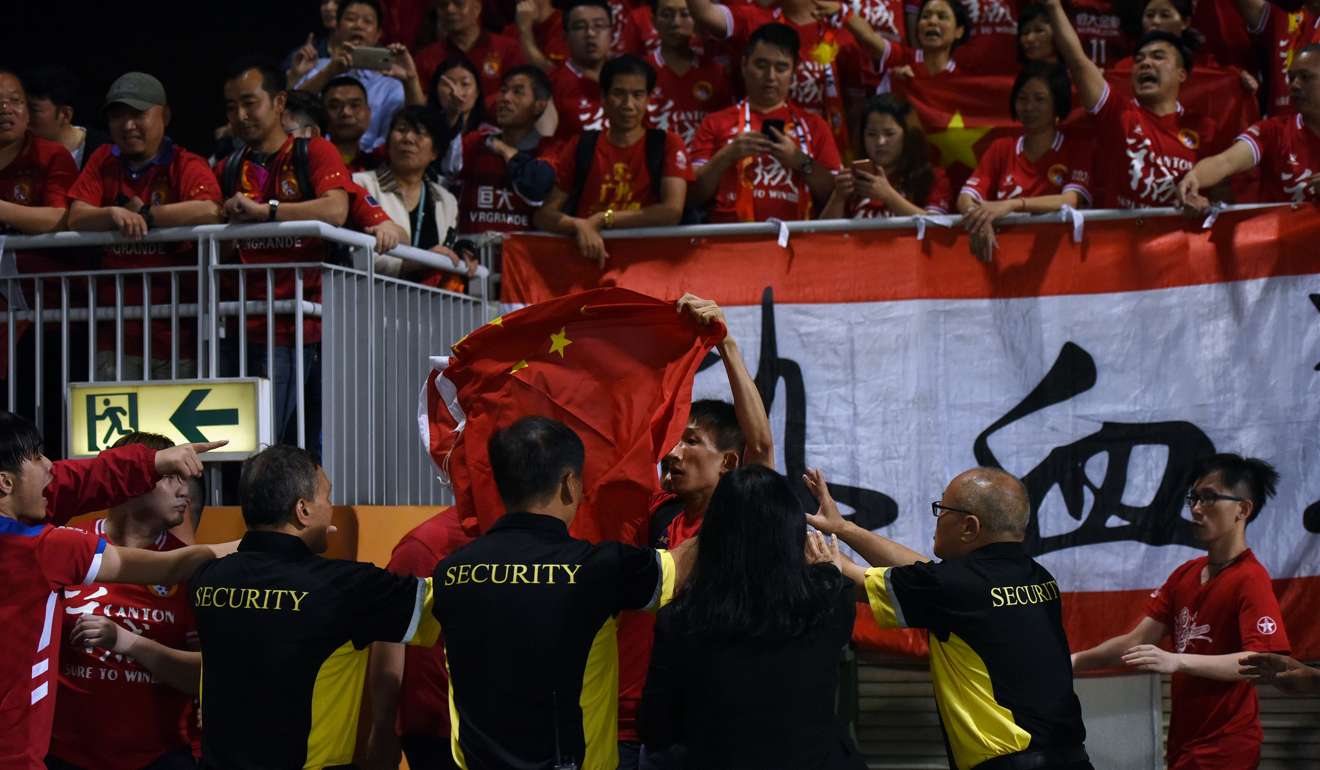
China’s media initially did not mention the banner, but the AFC’s announcement that Guangzhou were facing punishment forced them to acknowledge that something happened, without providing details – or pictures.
“Due to well-known reasons in recent years, individual Guangzhou Evergrande fans displayed a political slogan,” is an example of the fashion in which the incident has been reported.
Sina’s story mentioning possible sanctions has attracted nearly 60,000 comments, the most popular of which express the same kind of outrage.
“Hong Kong is China! This is beyond doubt! If you don’t like to be Chinese people you can leave any time! Support Evergrande fans, you speak the hearts of the people of the country!” was one example.
Tobias Zuser, a researcher on sports culture and policy currently based at Hong Kong Baptist University and founder of local football blog offside.hk, pointed out some ironies of Evergrande fans’ new-found nationalism.
“I think the incident shows once more that fan behaviour and attitudes are always flexible and contextual. Guangzhou supporters are famous for taking pride in their regional identity on a regular basis in the Chinese Super League, with some fancying the idea of an autonomous ‘Republic of Cantonia’.
“However, for occasions like the Asian Champions League, the patriotic and nationalist agenda always dominates. Evergrande fans also sing the national anthem during away games in South Korea and Japan.
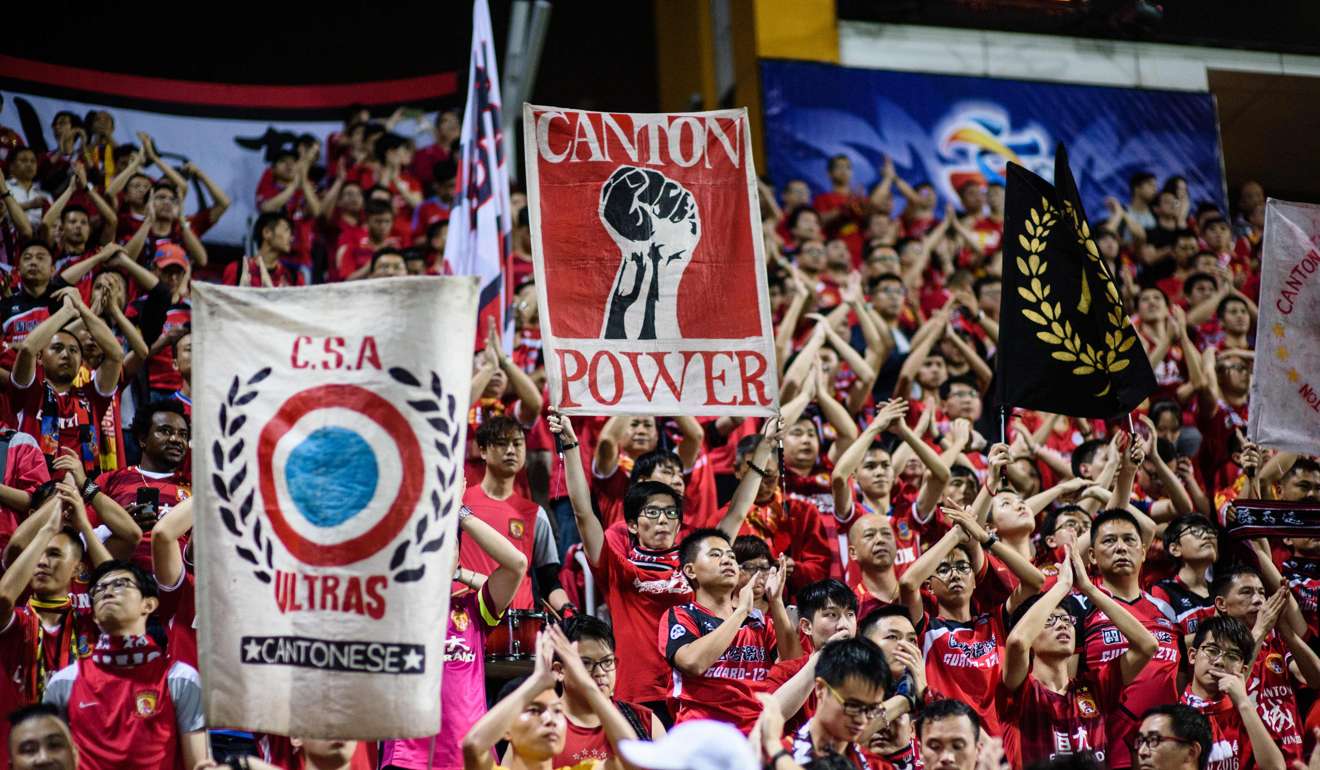
“Given the way it was executed, the banner was certainly a well-planned provocation. However, it also carries a subtle tone of irony, as this very behaviour would never be tolerated in a Chinese stadium – even within the CSL, where there are strict limitations on banners and flags.”
High-profile football games at Mong Kok Stadium have in recent years become a popular outlet for pro-independence, anti-China sentiment among Hong Kong fans, with the national anthem regularly booed and “We are Hong Kong!” (in English to underline the point) one of the most popular chants.
Guangzhou fans had the last laugh in both games, as their big-spending team hammered minnows Eastern 7-0 and 6-0.

